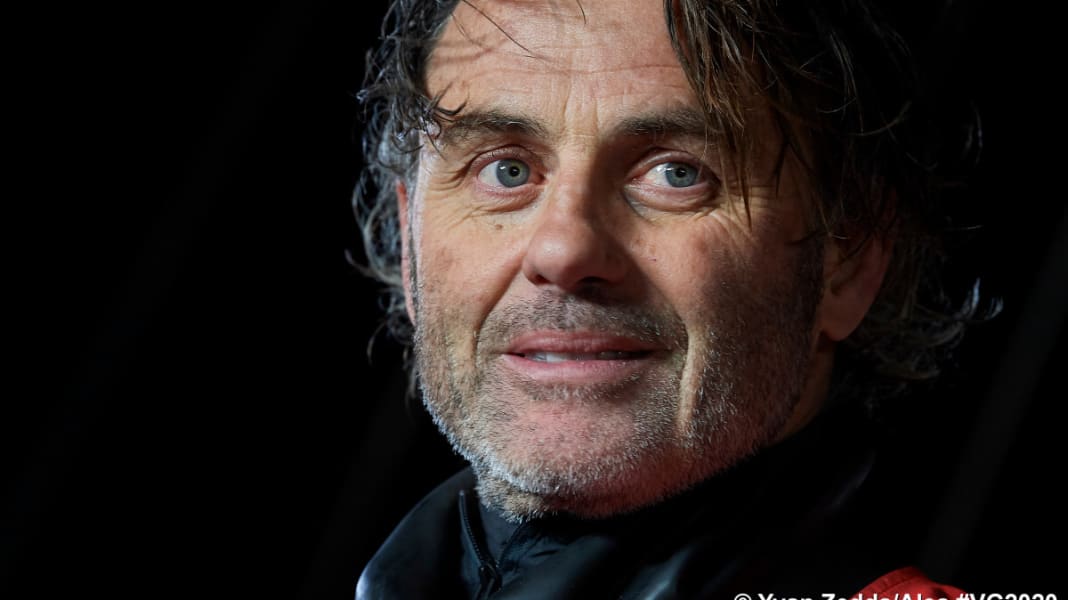
The French "Maître Coq IV" skipper Yannick Bestaven has won the ninth edition of the Vendée Globe. Although he only reached the finish line in third place early on Thursday morning at 3.19 a.m., the 48-year-old won with 2 hours, 31 minutes and 1 second ahead of Charlie Dalin ("Apivia") and 6 hours, 40 minutes and 26 seconds ahead of "Bureau Vallée 2" skipper Louis Burton. Because Bestaven, like Boris Herrmann ("Seaexplorer - Yacht Club de Monaco") and Jean Le Cam ("Yes We Cam"), was involved in Kevin Escoffier's rescue mission, the race organisers had given the three skippers a time credit depending on the extent of their involvement. Yannick Bestaven had received a compensation of 10 hours and 15 minutes and thus overtook Charlie Dalin and Louis Burton, who had finished ahead of him, in the final result.
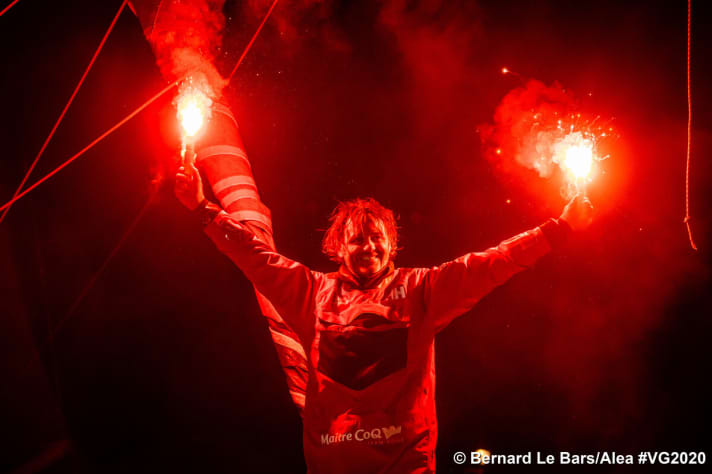
In English translation: the words of Vendée Globe winner Yannick Bestaven
In the replay: Charlie Dalin crossed the finish line first with "Apivia", but did not win. Plus a look back at Boris Herrmann's misfortune on the penultimate day, which cost him a well-deserved podium place
The "Maître Coq IV" man was one of two skippers who had led this Vendée Globe the most times: On 26 days (32 per cent) it was the likeable solo sailor, who grew up in Arcachon, who was in front. Yannick Bestaven's mentor is Yves Parlier. He believes his greatest strength is also his greatest weakness: "My stubbornness. I'm also pretty resilient." Although Yannick Bestaven was not one of the obvious favourites before the start, he had proven to be a strong fighter, especially in the southern seas. This was particularly true in the Indian Ocean: after passing Australia's Cape Leeuwin in third place, he reached Cape Horn in first place with a 15-hour lead.
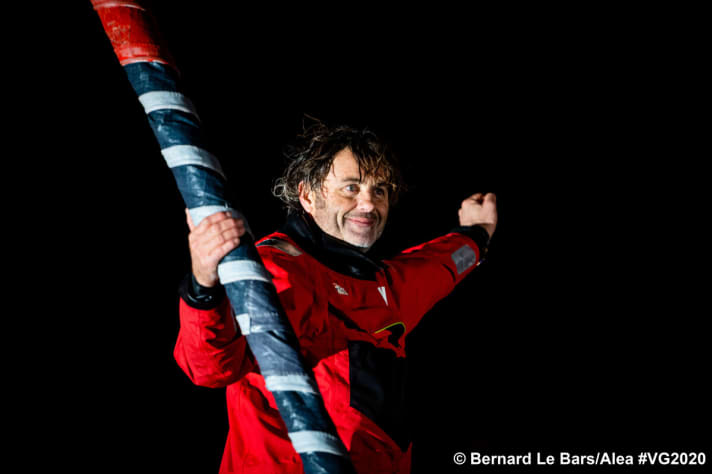
Bestaven was the comeback man
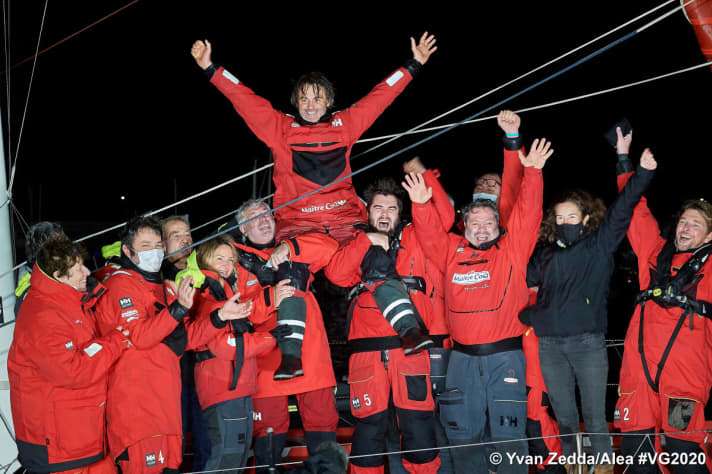
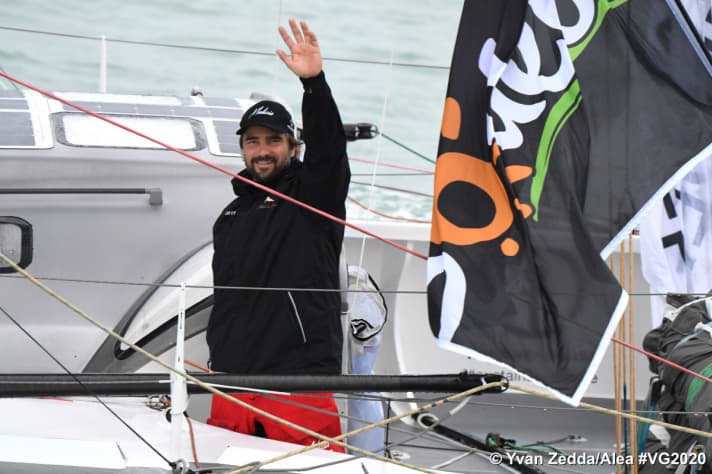
Boris Herrmann always had Yannick Bestaven, Mini-Transat winner in 2001 and very active as an offshore sailor for 20 years, on his radar as a candidate for a successful coup and had already said a week ago: "As the last sixth-placed sailor, Yannick always has the knife between his teeth. Over the course of the race, he always found good ways to push himself forwards. Let's see if and what surprises he can give us now." The man who had to abandon his first Vendée Globe race in 2008 just a few hours after the start with a broken mast in the Bay of Biscay and who runs his own company, Watt & Sea, which develops hydro generators that can also be found on many Imocas, has now shown what he is capable of.
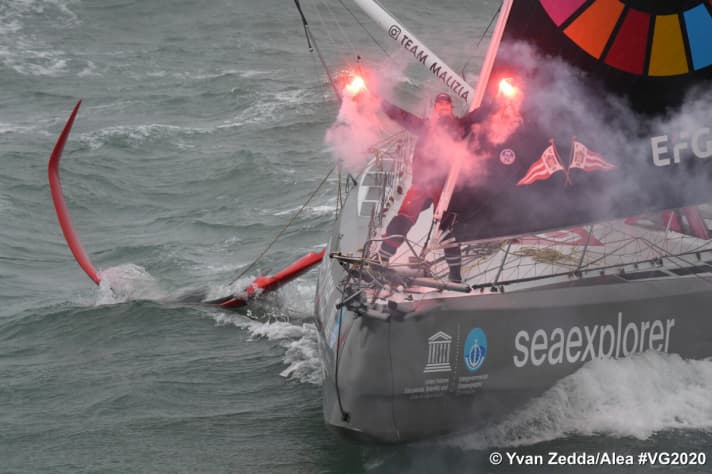
Boris Herrmann's outstanding performance in his Vendée Globe premiere had given him a similarly good chance of placing. But then, less than 100 nautical miles from the finish line after 80 days at sea, a collision with a fishing trawler knocked him off course, shocking not only himself but millions of fans back home. However, Herrmann coped with the setback on the home straight with damage such as a broken foil and a torn bowsprit, repaired what needed to be repaired, fought his way through and catapulted himself to fourth place. Official confirmation of the result was still pending on Thursday afternoon, as the five-time record participant Jean Le Cam (61, "Yes We Cam!"), sailing in eighth place, was heading for the finish with a time credit of 16 hours and 15 minutes and still has a chance of ousting the 39-year-old from Hamburg from his glorious fourth place.
Shortly before crossing the finish line, Herrmann had already bowed to his fans with WhatsApp messages: "Dear friends! Thank you so much for your support - in good times and bad. We have come through. We're almost there." A short time later, the skipper was able to embrace his wife Birte Lorenzen-Herrmann, daughter Marie-Louise and family dog Lilli and celebrate the first successfully completed Vendée Globe circumnavigation by a German starter in the start and finish harbour of Les Sables-d'Olonne.
At 24.2 per cent so far, the cancellation rate is low compared to previous editions
The ninth edition of the Vendée Globe attracted a record number of 33 boats with 27 men and six women at the start. Eight had retired by the time Boris Herrmann crossed the finish line. Complicated wind and weather conditions had resulted in slower Atlantic sections overall than in previous races. In the southern Pacific, a calm phase had caused the front boats to move closer together, as was the case again later off Rio de Janeiro. The difficult, short and cross seas in the Indian Ocean also meant that the powerful foilers of the latest generation were unable to realise their full potential. In addition, two top boats, Thomas Ruyant's "LinkedOut" and Charlie Dalin's "Apivia", suffered foil damage.
The regatta around the world experienced its most dramatic moments on the 22nd day after the start from 30 November to 1 December, when Kevin Escoffier's Imoca yacht "PRB" suddenly broke in two and sank. Escoffier was able to transfer to his life raft at the last second. Boris Herrmann was also among the skippers who were directed to the scene of the accident by the race organisers that night, as were winner Yannick Bestaven and record participant Jean Le Cam, who finally found and rescued Escoffier after eleven and a half hours in the dark. The participants had received appropriate compensation for the time invested in the happy ending. When the decision was made, however, nobody could have imagined how decisive these credits would one day be.

Tatjana Pokorny
Sports reporter

